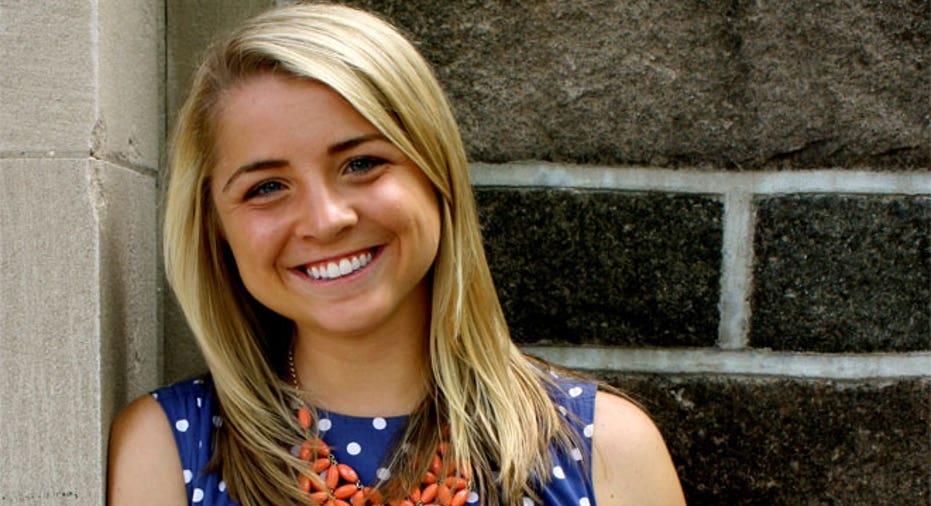How 'Mom, Do I Look Like a Smart Girl' Turned into a Business

A recent study by Cornell University shows female-owned businesses in some industries will out-survive male-owned businesses. And 20-year-old Emily Raleigh, a college sophomore with aggressive ambitions (and founder of an innovative company), is hoping her business will be one of them.
“Today, women make up 50% of the U.S. workforce, but they hold only 25% of the jobs in tech fields. We are sixty years into the women’s movement, yet their isn’t equal representation in a majority of leadership roles,” says Raleigh.
Raleigh is the founder of the Smart Girls Group (SGG), a small company that boasts daily and monthly digital publications, educational classes and an online community. SGG aims to promote women empowerment, or ‘girl power,’ as Raleigh puts it.
“There is this stigma in our society where to be smart for a woman means to be good at math or have a perfect SAT score,” says Raleigh. “While that’s some kind of smart, it isn’t every kind. Our end goal... is transforming what it means to be ‘smart.’”
Raleigh found a bigger meaning in this five-letter word at an early age.
“My parents were always really big on smarts. When I was a little girl, I would wake up every single morning and get dressed for school and ask my mom if I looked like a smart girl,” she says.
After a few years of following this daily routine, Raleigh wrote a book detailing how to be a “smart girl,” and presented it to her younger sister, who was then entering high school. This book, she explains, was the foundation for Smart Girls Group, which she says is desperately needed in today’s world.
“Only 4.2% of all Fortune 500 CEOs are women, yet there are more women than men graduating from college every year. Women hold 20% of all seats in parliaments globally. 57% of rock music videos portray women as a sex object, a victim, as unintelligent, or in a condescending way,” says Raleigh.
Raleigh says SGG is just for women.
“When we were trying to figure out the target market, I knew that I had always wanted to empower girls. Girls don’t always see themselves as being equal to males, so we need to empower young women to believe that they’re smart in order to change statistics,” she says.
Raleigh’s all-girls rule facilitated her wish to form a sisterhood within SGG, something that she believes sets her group apart from others like it.
“SGG isn’t only for one specific interest or specific career path, it’s for every type of girl. By bringing diversity and different talents together, we have created a strong group of girls from around the globe that we can connect with and learn from,” she says.
When asked exactly what it is that’s being learned, Raleigh’s answer is simple.
“Everything. Whether you are training to run a marathon or want to craft a stellar resume, there is someone in SGG who knows about it and will share their smarts with girls. By cultivating such a diverse group of Smart Girls, we are able to have resources for a vast array of topics,” she says.
Raleigh says SGG readers are in the U.S., the UK, India, China and 22 other countries.
“The girls are really from all over and that’s the best part. 82% of people who have heard of SGG have heard about it from other girls, so that word-of-mouth type of communication says a lot, I think, about what girls are getting out of it,” she says.
Like all budding businesses, SGG faces challenges along the way. Maurissa Walls, director of marketing and public relations, notes that when issues arise they are met by “a very vocal group of girls”, so that areas in need of improvement “don’t stand long without being brought to [their] attention.”
Editor-in-Chief Quincy Bulin, however, admits, “it is a bit more difficult being on staff when everyone is so far away from each other. We remedy this with Sunday night [online] meetings, but it would be a lot more fun if we were with each other in person.”
Raleigh, too, feels that there is always room for improvement.
“The baby of the company is the campus chapter program and our online classes. I wouldn’t exactly call those programs ‘weak’, but they’re the newest and are still being developed.”
For Raleigh, a double-major at Fordham University and an executive board member of various school clubs, work means play.
“When people ask me what I do for fun, I want to say Smart Girls Group! That really is what I consider fun. My best friends are running this company with me, and I love it,” she says.



















